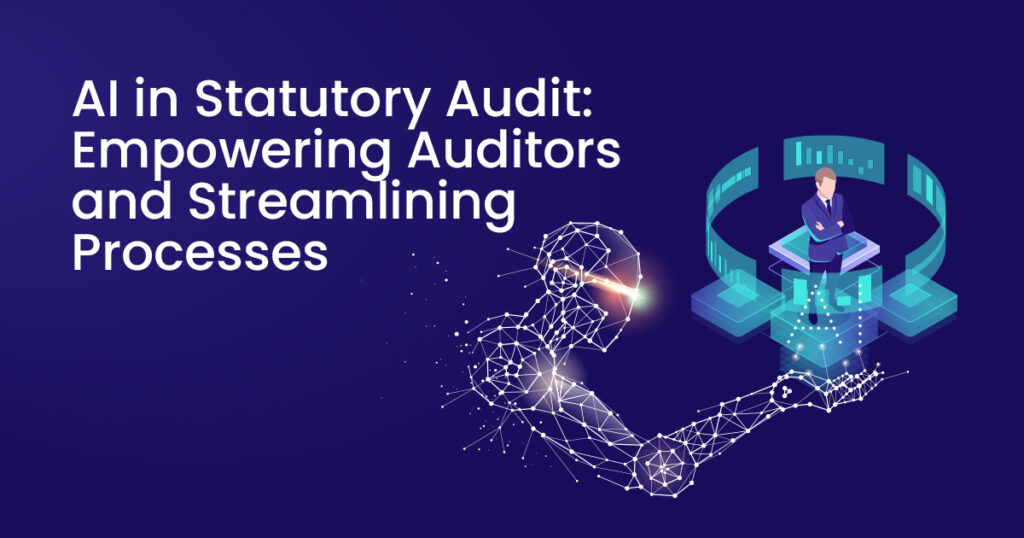Introduction:
The field of auditing plays a crucial role in ensuring transparency, accuracy, and
accountability in financial reporting. As technology continues to advance, the integration of
artificial intelligence (AI) has revolutionized various industries, and the domain of statutory
audit is no exception. AI-powered tools and techniques have the potential to enhance the
effectiveness and efficiency of the auditing process, enabling auditors to uncover insights,
mitigate risks, and deliver higher quality audits. In this blog, we will explore the various ways
in which AI is being used in statutory audit and the benefits it brings to the table.
1. Data Analytics and Pattern Recognition:
One of the primary applications of AI in statutory audit is the use of advanced data analytics
and pattern recognition algorithms. Auditors can leverage AI to analyze vast amounts of
financial data, identify patterns, and detect anomalies or irregularities that may indicate
potential fraud or errors. AI algorithms can process structured and unstructured data,
including financial statements, invoices, contracts, and other relevant documents, leading to
more accurate and comprehensive audit findings.
2. Machine Learning for Risk Assessment:
AI-powered machine learning algorithms have the ability to learn from historical audit data
and develop predictive models for risk assessment. By analyzing past audit results and
identifying common risk factors, machine learning algorithms can assist auditors in
evaluating the likelihood of misstatements, fraudulent activities, or non-compliance. This
enables auditors to focus their efforts on high-risk areas, improving audit efficiency and
effectiveness.
3. Natural Language Processing (NLP) for Text Analysis:
NLP is a branch of AI that focuses on understanding and processing human language. In
the context of statutory audit, NLP can be used to extract valuable information from textual
documents such as contracts, financial statements, and legal agreements. NLP algorithms
can automatically analyze and interpret the text, extract key data points, and identify any
inconsistencies or non-compliance with regulations. This significantly speeds up the audit
process and improves the accuracy of data extraction.
4. Automation of Routine Tasks:
AI technologies can automate repetitive and time-consuming tasks in the audit process,
allowing auditors to focus on more strategic and value-added activities. For example, AI-
powered tools can automatically reconcile financial data, verify transactional information, and
perform calculations, freeing up auditors’ time to engage in higher-level analysis and
judgment. This not only enhances productivity but also reduces the chances of human error.
5. Fraud Detection and Forensic Analytics:
Detecting fraudulent activities is a critical aspect of statutory audit. AI-based fraud detection
tools employ advanced algorithms to analyze large volumes of financial data, identify
unusual patterns or suspicious transactions, and flag potential fraud risks. These tools can
also perform forensic analytics to reconstruct financial transactions, trace the flow of funds,
and detect hidden relationships or fraudulent schemes. By leveraging AI for fraud detection,
auditors can proactively identify and prevent financial irregularities.
Conclusion:
The incorporation of AI in statutory audit has the potential to transform the auditing
profession. By harnessing the power of data analytics, machine learning, natural language
processing, and automation, auditors can improve the accuracy, efficiency, and
effectiveness of the audit process. AI-driven tools and techniques empower auditors to gain
deeper insights, identify risks, detect fraud, and ensure compliance with regulatory
requirements. As technology continues to evolve, the role of AI in statutory audit will likely
expand, enabling auditors to deliver higher quality audits and provide greater value to their
clients and stakeholders.


